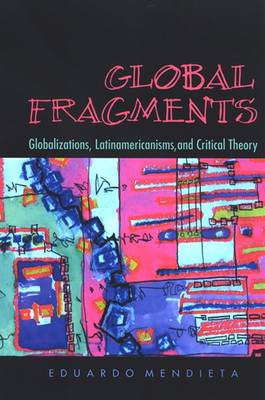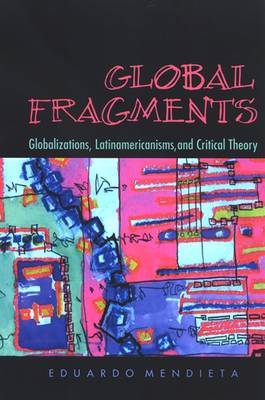
- Afhalen na 1 uur in een winkel met voorraad
- Gratis thuislevering in België vanaf € 30
- Ruim aanbod met 7 miljoen producten
- Afhalen na 1 uur in een winkel met voorraad
- Gratis thuislevering in België vanaf € 30
- Ruim aanbod met 7 miljoen producten
Global Fragments
Globalizations, Latinamericanisms, and Critical Theory
Eduardo MendietaOmschrijving
Philosophical explorations of the processes of globalization, particularly in the context of Latin America.
Global Fragments offers an innovative analysis of globalization that aims to circumvent the sterile dichotomies that either praise or demonize globalization. Eduardo Mendieta applies an interdisciplinary approach to one of the most fundamental experiences of globalization: the mega-urbanization of humanity. The claim that globalization unsettles our epistemic maps of the world is tested against a study of Latin America. Mendieta also recontextualizes the work of three major theorists of globalization-Enrique Dussel, Cornel West, and Jürgen Habermas-to show how their thinking reflects engagement with central problems of globalization and, conversely, how globalization itself is exemplified through the reception of their work. Beyond the epistemic hubris of social theories that seek to accept or reject a globalized world, Mendieta calls for a dialogic cosmopolitanism that departs from the mutuality of teaching and learning in a world that is global but not totalized.
Specificaties
Betrokkenen
- Auteur(s):
- Uitgeverij:
Inhoud
- Aantal bladzijden:
- 234
- Taal:
- Engels
Eigenschappen
- Productcode (EAN):
- 9780791472583
- Verschijningsdatum:
- 5/06/2008
- Uitvoering:
- Paperback
- Formaat:
- Trade paperback (VS)
- Afmetingen:
- 167 mm x 228 mm
- Gewicht:
- 326 g

Alleen bij Standaard Boekhandel
Beoordelingen
We publiceren alleen reviews die voldoen aan de voorwaarden voor reviews. Bekijk onze voorwaarden voor reviews.









